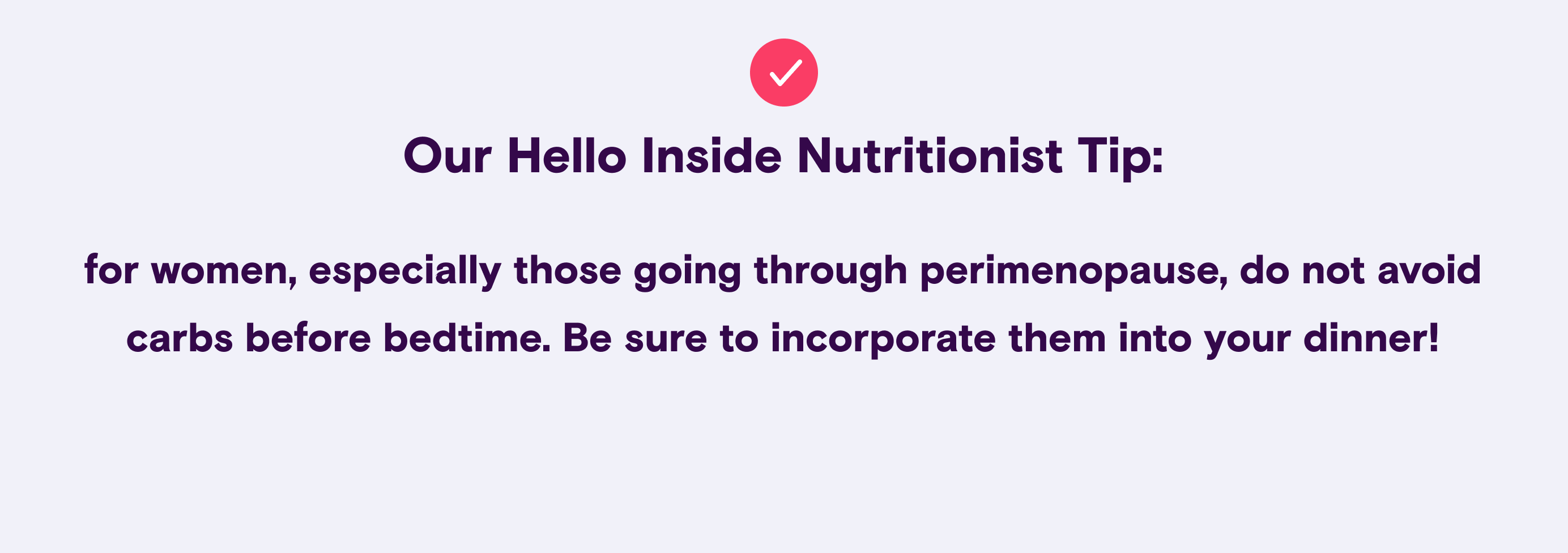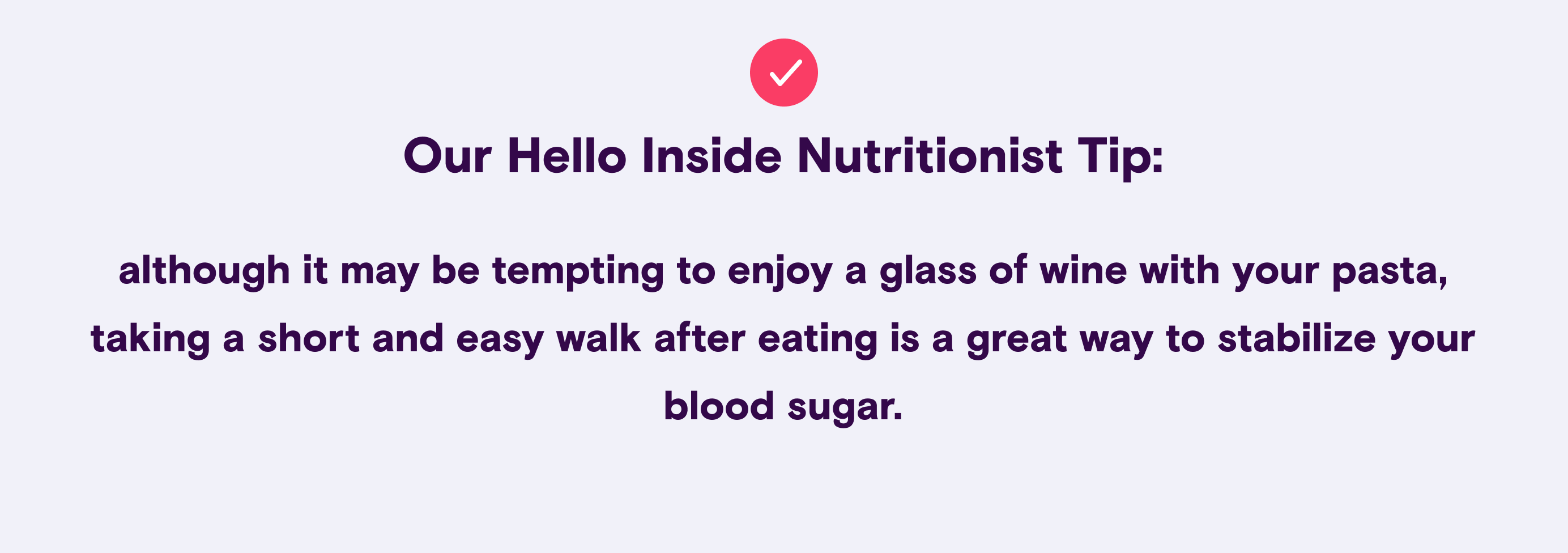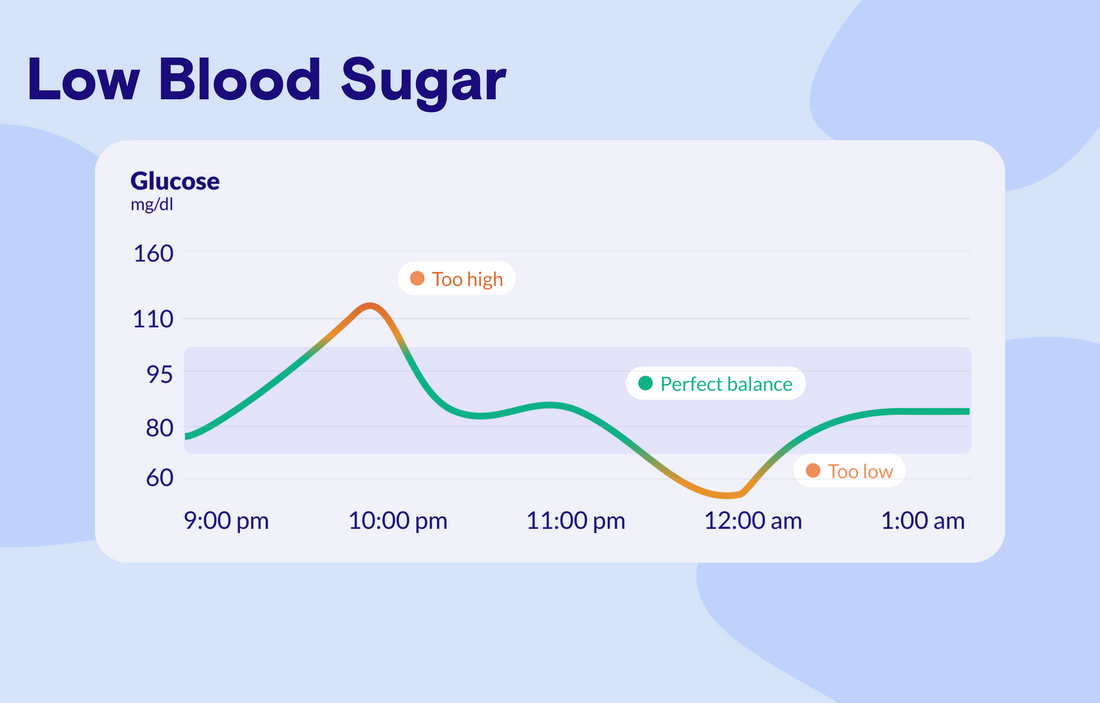As you lay down to rest and enter the world of sleep to recharge, your body continues to perform a symphony of intricate processes even when you are sound asleep. One thing that can happen to some people is experiencing low blood sugar at night. Low blood sugar, also called hypoglycemia, can be quite puzzling and unsettling.
Low blood sugar can be the reason why you’re waking up in the middle of the night feeling sweaty, shaky, and weak. You may be wondering why this happens and what causes low blood sugar at night. In this blog post, we will explore the reasons behind why this happens and dive into some things you can do to prevent it.
What Is Hypoglycemia?
Before we dive into the specifics of why low blood sugar occurs at night, let's first understand what exactly low blood sugar, or hypoglycemia, is. More specifically when your glucose levels go below 70 mg/dl. Hypoglycemia is a diagnosis for individuals with diabetes given when they have abnormally low levels of glucose in the blood. Glucose serves as the primary source of energy for our bodies, and when the levels drop too low, various symptoms can arise (1).
The Role of Insulin
Insulin, a hormone produced by the pancreas, plays a vital role in regulating blood sugar levels. It helps transport glucose from the bloodstream into our cells, allowing them to convert it into energy. However, when there is an excess of insulin or a lack of glucose, blood sugar levels can plummet.
Causes of Low Blood Sugar at Night
At night, your body undergoes various changes to support rest and recovery. While it is normal for your blood sugar to have some small fluctuations overnight, big changes, including low blood sugar levels, will impair your sleep.There are several factors that can contribute to low blood sugar dropping too low during the night. Let's explore some of the common causes:
Late or inadequate dinner
Eating a late dinner or not consuming enough carbohydrates can lead to a drop in blood sugar during the night. Our bodies require a steady supply of glucose, especially during sleep when metabolism slows down.

Intense exercise in the evening
When engaging in an intense workout close to bedtime it can deplete your glycogen stores in your muscles and liver, resulting in lower blood sugar levels during the night. We don’t want to discourage you from changing your exercise routine or hinder your goals. Just be sure to eat enough carbs to refill your glycogen storage to avoid your blood sugar levels dropping too low at night. An intense workout close to bedtime is also more likely to cause problems letting you fall asleep.
Drinking alcohol
Alcohol interferes with the liver's ability to release stored glucose, leading to a drop in blood sugar levels. This effect can be more pronounced when alcohol is consumed in the evening.
Medications
Certain medications, such as insulin or oral diabetes medications, can cause blood sugar levels to drop. It's important to follow the prescribed dosage and consult with your healthcare provider if you suspect your medication is causing low blood sugar at night.
By addressing these potential causes and managing them effectively, you can mitigate the likelihood of experiencing low blood sugar at night. If you continue to have recurrent episodes, it's essential to consult with your healthcare provider for personalized guidance.
Tips To Prevent Low Blood Sugar
Managing low blood sugar levels at night requires a multi-faceted approach that encompasses dietary adjustments, medication management (for individuals with diabetes), and mindful lifestyle changes.
Optimize Your Diet
Choosing complex carbohydrates with a lower glycemic index can help prevent drastic spikes and crashes in blood sugar levels. Incorporating lean protein, fiber, and healthy fats into evening meals can also provide sustained energy throughout the night (2).

Medication Management
For individuals with diabetes, medication adjustments under medical supervision may be necessary to prevent nocturnal hypoglycemia. Consultation with a healthcare provider is essential to ensure proper insulin or medication dosages, considering factors like activity level and overall health. Ask your doctor before making any changes (3).
Avoid Bedtime Snacking
A small, balanced snack before bedtime can help stabilize blood sugar levels throughout the night. Opt for a combination of carbohydrates and protein, such as whole-grain crackers with cottage cheese or a slice of whole-wheat bread with almond butter.
Regular Glucose Monitoring
Frequent blood sugar monitoring, especially before bedtime, is crucial in understanding your body's response to different factors. Keep track of your readings and communicate any patterns of nocturnal hypoglycemia to your healthcare provider.
Glucose Tracking Made Easy
See if the lifestyle changes you make to prevent low blood sugar at night are actually working by tracking your glucose levels. With our Hello Inside subscriptions we provide you with a continuous glucose monitor (CGM) and premium app features to keep you informed about your health. A few simple changes can bring a lifetime of better health and better sleep, when your hypoglycemia is no longer keeping you from a peaceful night’s sleep. Check out all our Hello Inside subscription offers here.
Conclusion
Low blood sugar, or hypoglycemia, can be a perplexing experience, but by diving into the mechanisms of blood sugar regulation and lifestyle factors, you can begin to unravel its mysteries. Armed with the knowledge of how your body works, you can make informed choices to prevent and manage your low blood sugar, ensuring restful nights and optimal health.
Remember, everyone is unique, and what works for someone else may not work for you. Don’t be afraid to consult with a healthcare professional to understand your specific needs and to tailor an approach that would help you keep your blood sugar levels stable. With the right strategies in place, you can overcome the challenges of low blood sugar at night and embrace the beauty of peaceful slumber.






